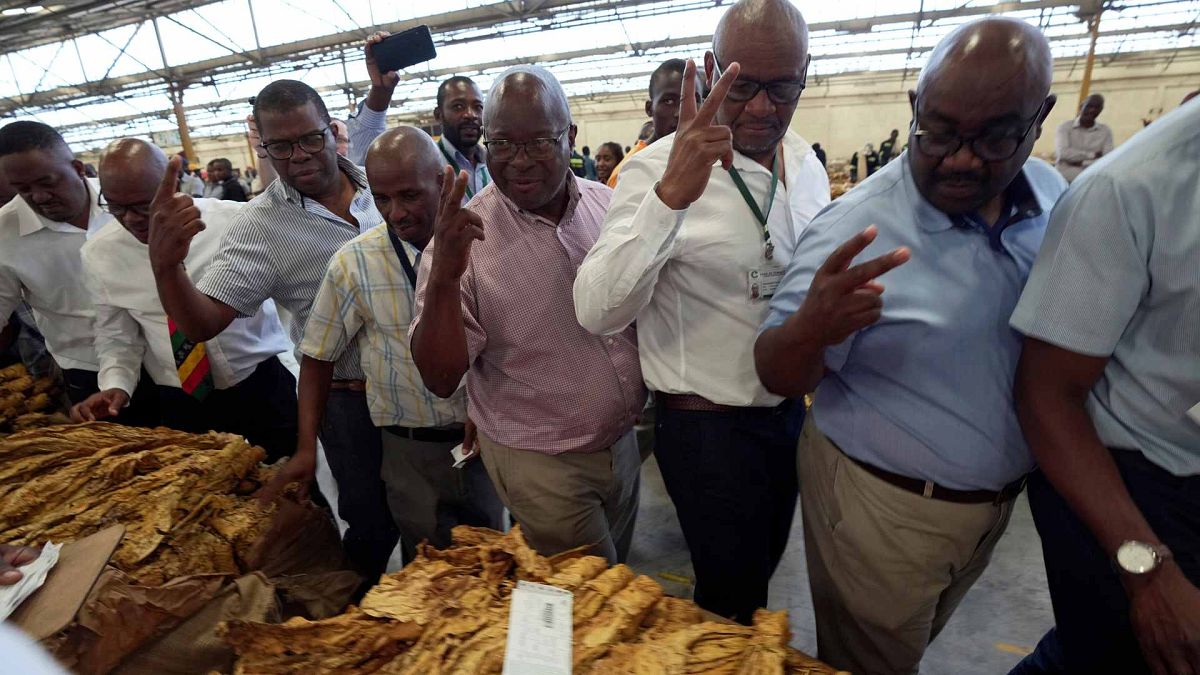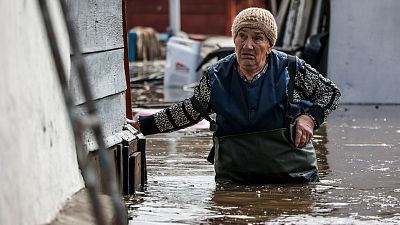Farmers are predicted to lose 20% of their income leaving many to rely on food aid.
Zimbabwe, Africa’s largest tobacco producer, began its annual tobacco-selling season on Wednesday, with officials and farmers projecting a sharp decline in harvests and quality because of a drought blamed on climate change and worsened by El Niño.
From a record harvest of 296 million kilograms (326,000 tons) last year, the country is estimating that production will fall to about 235 million kilograms (259,000 tons) this season, says Patrick Devenish, chairman of the Tobacco Industry Marketing Board (TIMB), at the official opening event in the capital, Harare.
“Most of our tobacco is grown by small-scale farmers. They depend on the rains, and a drought is not good for their crop," Devenish said. "The quality of some of the tobacco may also be affected.”
He says Zimbabwe sells the bulk of its tobacco to China, although Western and Eastern Europe and parts of Africa remain important markets. In 2023, it received a record $1.2 billion (€1.1 billion) from tobacco exports, up from $975 million (€960 million) in 2022, according to the TIMB. Tobacco is one of the country's major foreign currency earners, along with minerals such as gold.
Unpredictable weather is ruining tobacco crops
Agriculture minister Anxious Masuka said small-scale farmers, who lack equipment and depend on rain, produce about 75% of the crop. This makes the country’s production vulnerable to weather conditions.
Like some of its southern African neighbors, Zimbabwe is battling a devastating drought that aid agencies blame on El Niño and climate change.
Tobacco production had been rebounding in the tiny African nation, after plummeting from about 240 million kilograms (265,000 tons) in 1998 to less than 50 million kilograms (60,000 tons) a decade later following the eviction of several thousand white farmers who accounted for the majority of growers.
With last year's record harvest, Zimbabwe regained its spot as one of the world’s top 10 exporters of tobacco, alongside mega producer China, India, Brazil, the United States and Indonesia.
The country had hoped to increase its harvest to 300 million kilograms (330,000 tons) by the end of 2025 under a government-led tobacco transformation plan adopted in 2021.
But the drought has badly dented farmers’ optimism this season.
“The drought is likely to cost farmers 20% or more of their usual earnings,” said George Seremwe, president of the Zimbabwe Tobacco Growers Association, which represents Black small-scale farmers.
'The toughest season'
Likephone Makii, a tobacco farmer from Madziwa, about 140 kilometres (90 miles) northwest of Harare, looks at the price he receives at auction for one of his bales, just $1.70 (€1.55) a kilogram because of its poor quality, and shaked his head in dejection.
Makii, who has been growing tobacco for the last nine years, says he usually harvests 6,000-7,000 kilograms (6.6-7.7 tons) from his two-hectare (5-acre) plot, which relies on rainwater. He expects only 3,000 kilograms (3.3 tons) this season.
“It has been the toughest season for me and my fellow small-scale farmers," he said.
Reliant solely on tobacco for survival, Makii predicted his family will need food assistance to make it through the year.
He will join millions of others forced to rely on food aid as the drought takes its toll on families that grow cash crops such as tobacco as well as staple foods such as maize, according to aid agencies.



